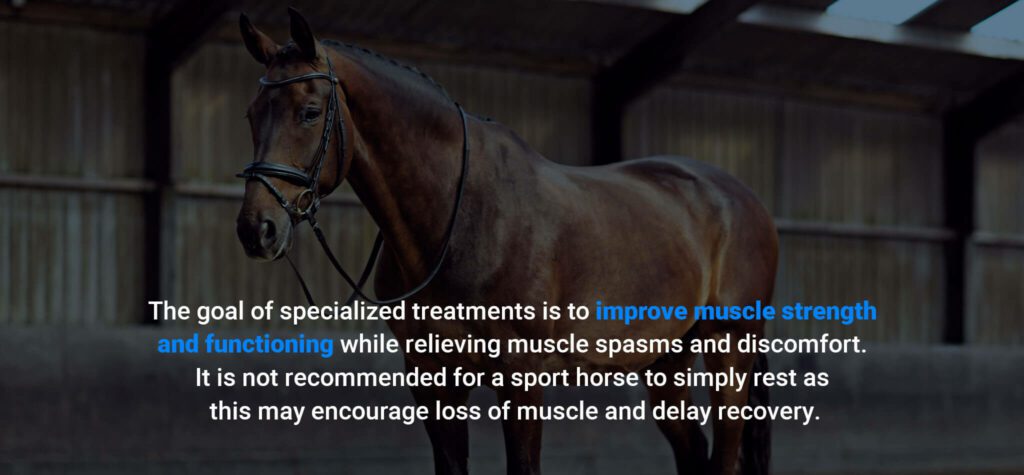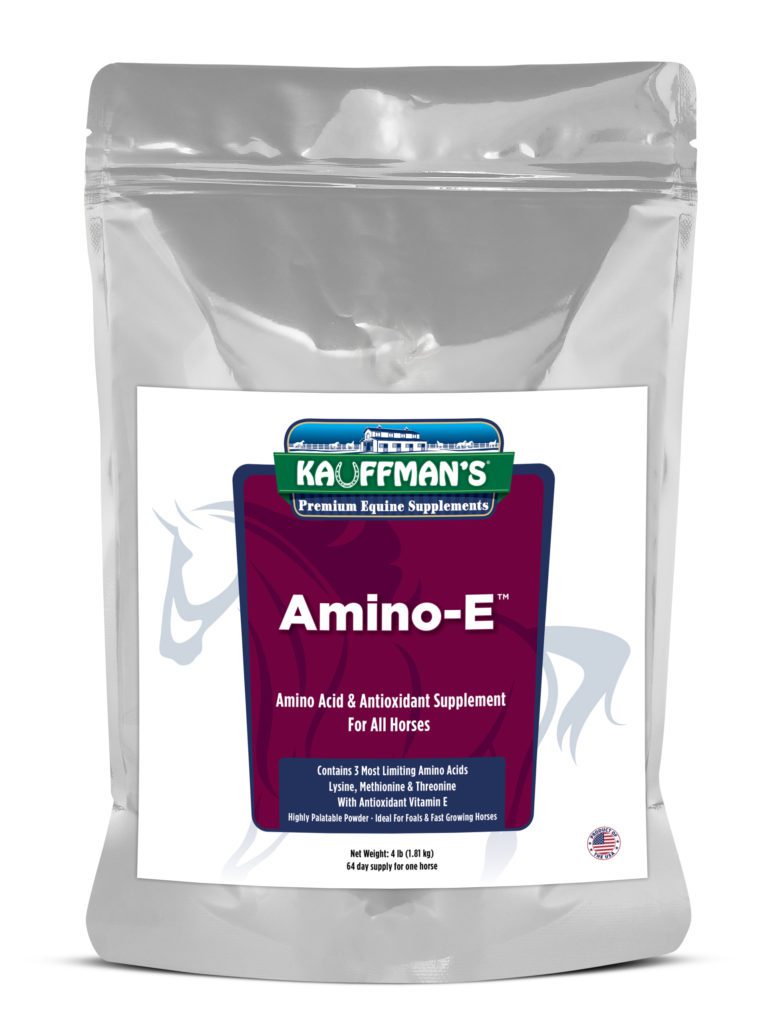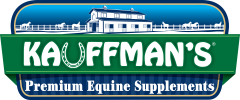Identifying and Managing Neck and Back Pain in Sport Horses

Back and neck pain in sport horses usually originates from their nervous or musculoskeletal system. Although these types of back and neck pain may exhibit clinically similar symptoms, they will require distinctly different treatment approaches that target compressed/pinched nerves or damaged muscles/joint tissues.
Causes of back and neck pain in sport horses can range from traumatic injury, ill-fitting saddles and spinal arthritis to pinched spinal nerves, slipped discs or even a tumor growing on spinal nerves or spinal vertebrae. Congenital defects may not manifest themselves until the horse is older and fully engaged as a professional sport horse.
Recognizing Neck or Back Pain in Sport Horses
Nerve or musculoskeletal pain is not common in younger horses. As sport horses age, however, their risk of suffering neck or back pain rises significantly. In fact, equine researchers investigating the physiological effects of aging on horses found that over 70 percent of horses older than 20 are diagnosed with some kind of age-related condition that needs special treatment.
It appears that the equine skeletal system takes the brunt of the aging process, with most horses of all breeds eventually experiencing varying degrees of arthritis. Detecting equine arthritis in its early stage is essential for reducing the horse’s risk of suffering spavin or ringbone and becoming crippled. Sodium hyaluronate, polysulfated glycosaminoglycan and other injectable therapies work well for treating arthritis in older sports horses.
Symptoms of possible neck or back pain in sports horses include:
- Abnormal head positioning/head carriage (the neck may appear fixed in a lowered or tilted position).
- Shortened forelimb strides.
- Fiercely swishing or “wringing” their tail. When grooming a horse suffering from back or neck pain, this tail swishing could be violent.
- Ears that are consistently laid flat.
- Sensitivity around the ears.
- Constant head tossing or nodding when in the paddock or under saddle.
- Frequent opening of the jaws and/or yawning.
- Dipping of their back when you press over or touch saddle contact areas.
- Forelimb straddling when eating off the ground.
Correctly diagnosing the cause of neck and back pain in horses involves complete assessment and palpation of the horse’s back and neck. X-rays can also detect possible fractures, damaged muscles or other issues. Sometimes, your vet may order a thermography or bone scan to improve the accuracy of the diagnosis.
How to Manage Back Pain in Sport Horses
Depending on the cause of the pain, managing back pain in sport horses typically involves mesotherapy, ESWT, systemic tiludronate therapy and interspinous processes injections. The goal of these specialized treatments is to improve muscle strength and functioning while relieving muscle spasms and discomfort. It is not recommended for a sport horse to simply rest as this may encourage loss of muscle and delay recovery.

Equine Shockwave Therapy (ESWT) employs acoustic pulses characterized by pressure increases and highly-positive pressure amplitudes. ESWT stimulates bone growth, regenerates damaged tissues and promotes endorphin release in horses to help alleviate back pain.
Tiludronate is a medication belonging to the bisphosphonate drug class that is used to treat equine navicular disease and osteoarthritis. Steroid injections can also help reduce inflammation and pain.
Mesotherapy involves the injection of conventional or holistic medications into the horse’s mesoderm, or middle skin layer. It is a fairly new, somewhat alternative way of managing back pain in sport horses based on a theory of pain called the “gait control” of pain.
How to Manage Neck Pain in Sport Horses
Since back pain in sport horses is often accompanied with neck pain (and vice versa), managing neck pain in horses generally follows protocols used to treat back pain.
Chiropractic adjustments performed by an expert equine veterinarian may relieve neck pain by realigning vertebrae and removing pressure from compressed nerves. Therapeutic massage and even acupuncture are also being explored and used by sport horse owners who balk at injecting their horse with corticosteroids or other medications.
Kauffman’s® Equine Nutritional Supplements May Help Promote Muscle Health in Sport Horses
One of our most popular horse supplements is Amino-E, which offers nutritional support for improved muscle health in sports horses. Amino-E contains vitamin E and the three most beneficial amino acids essential for equine muscle stamina.
Buy Amino-E today:

KAUFFMAN’S® Amino-E
KAUFFMAN’S® Amino-E provides nutritive support for muscle health of equine athletes by providing the three most limiting amino acids and supplemental Vitamin E in the proper amounts and ratios.
When you need to make sure your sport horse is in peak condition and feeling his best, trust Kauffman’s®.
